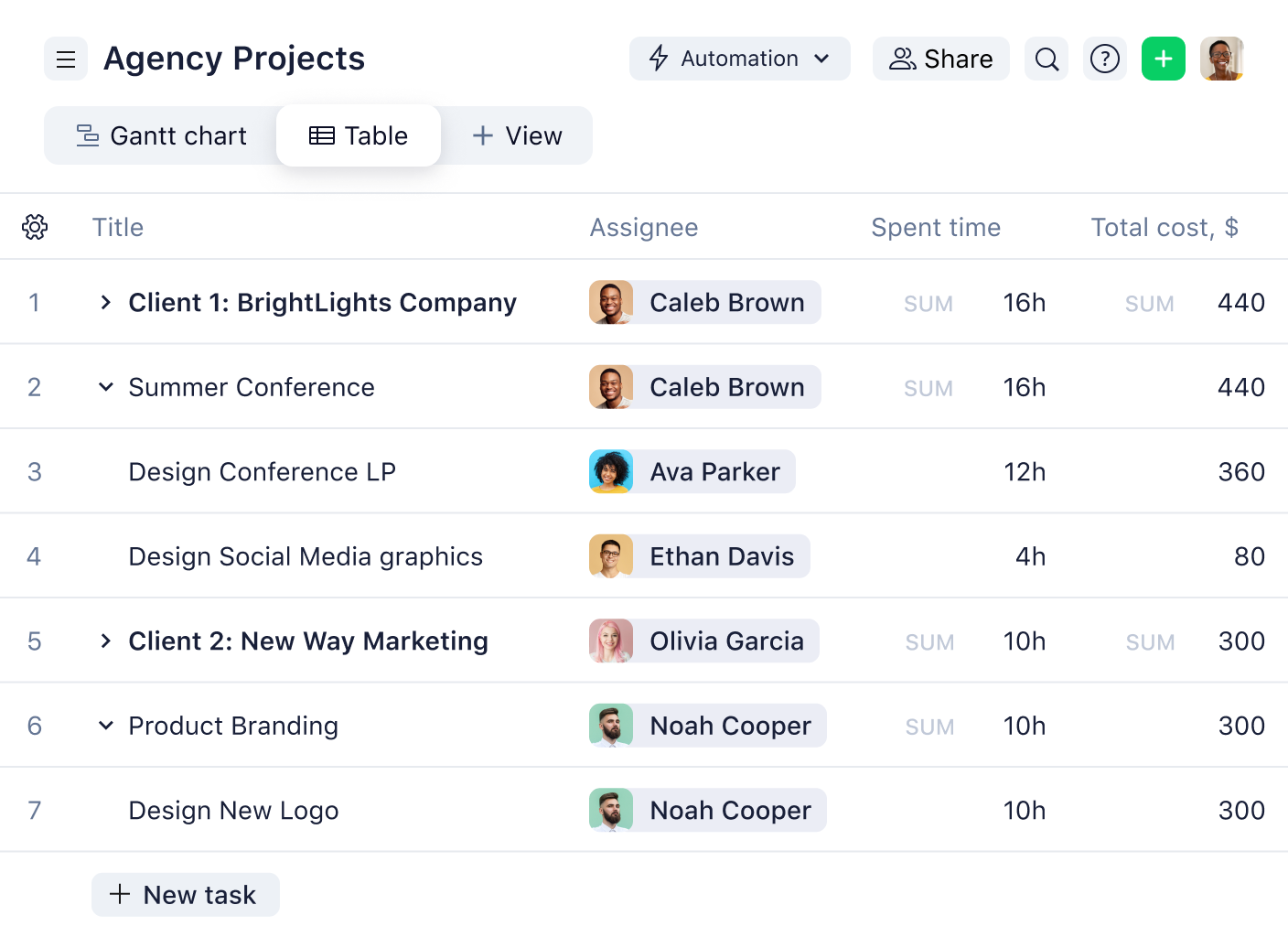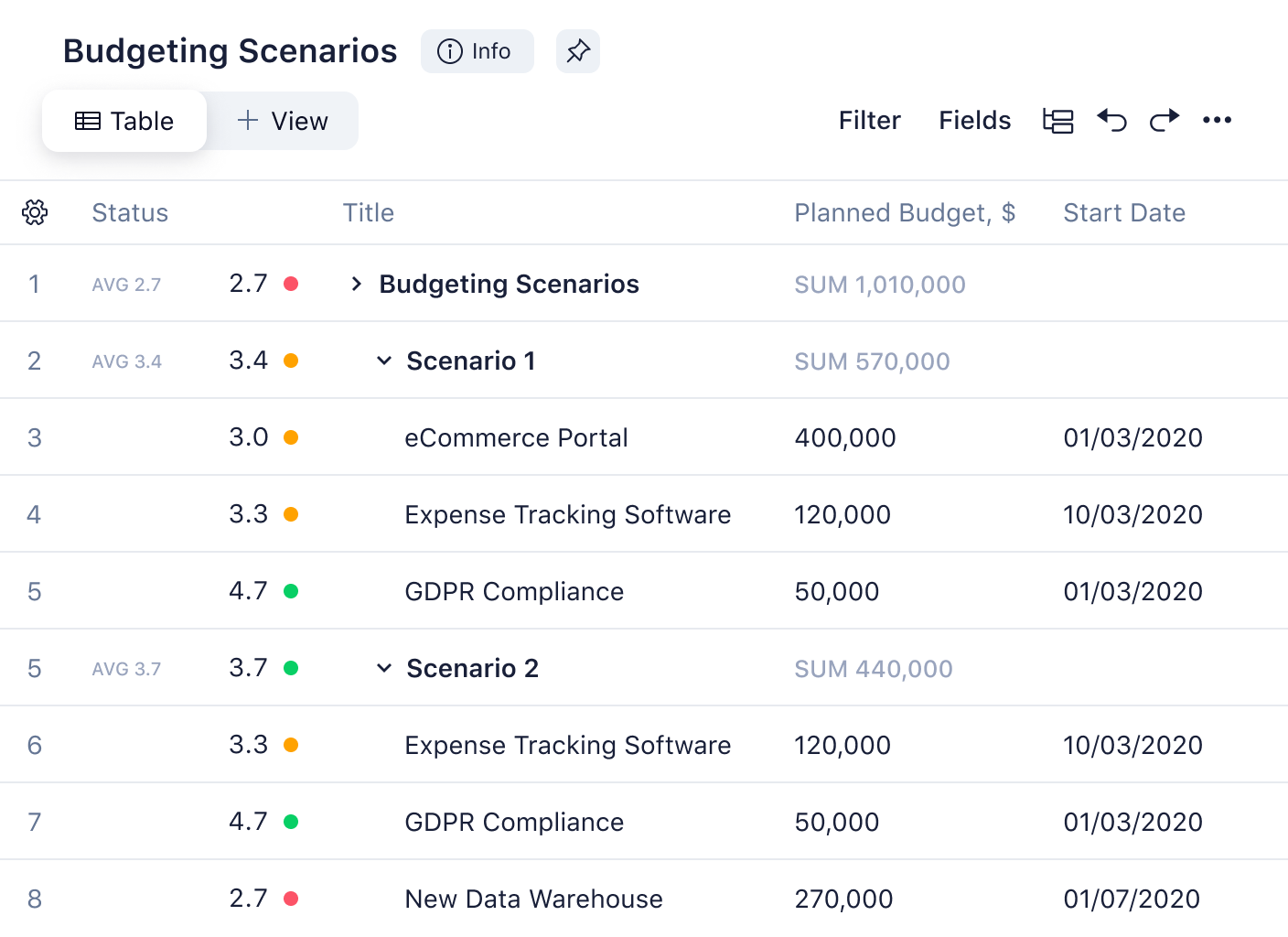What is Cost Management in Project Management?
What is Cost Management in Project Management?
Effective cost management is a crucial aspect of project management that directly impacts the success and profitability of a project. It involves planning, estimating, budgeting, and controlling expenses throughout the project lifecycle.
In this article, we’ll cover cost management in detail by diving into what it is, why it’s important, as well as what the benefits and challenges are.
Or, skip ahead and discover how Wrike can revolutionize your cost management practices by starting a free trial today!
Cost management definition
Cost management is the process of estimating, allocating, and controlling project costs. The cost management process allows a business to predict future expenses to reduce the chances of budget overrun. Projected costs are calculated during the planning phase of a project and must be approved before work begins.
Expenses are documented and tracked as the project plan is executed, so teams stay within the cost management plan. Once the project is completed, predicted costs and actual costs are compared, providing benchmarks for future cost management plans and project budgets.


Why is cost management important in project management?
Cost project management is vital to an organization’s project planning process. Global services company Accenture believes sustainable cost management should be “part of the company’s DNA.”
Without a detailed budget, you cannot effectively map out the resources needed for your project. For example, if you are renovating an office building, you need to hire an architect, pay for building materials, and agree upon hourly rates for construction workers. To do this, you need to accurately estimate all costs and ensure you have the budget to cover them.
Plan and manage costs efficiently
What are the benefits of cost management in project management?
Project managers should not underestimate the business advantages of effective cost management. Here are three of the key benefits:
- Prevents overruns: By allotting costs in the early planning stages, project managers ensure they don’t overspend on specific areas.
- Avoids risk: A good budget will have a risk allowance to ensure project success is not compromised if unforeseen costs arise.
- Aids future planning: Cost reports can help with resource optimization. This can lead to more accurate budgets in the future.


What are the challenges of cost management?
Cost project management can be tricky. Here are three challenges that frequently crop up:
- Lack of resources: If a project budget is too small, it can be difficult to secure the required labor, materials, etc., to complete the project successfully.
- Inaccurate estimation: Poor forecasting can occur when a manager is inexperienced or doesn’t fully understand the scope of the project. This can lead to cost overruns and affect overall profitability.
- Outdated technology: Project managers need access to intuitive, up-to-date technology and tools to manage costs accurately.
Who is responsible for cost management in a project?
Project managers are responsible for cost project management. As part of their role, they must estimate total costs, plan the budget, monitor spend, and prepare for potential risks. A project manager must remain vigilant throughout the cost management process to ensure they stay within budget and improve profitability.
Which project tools help with cost management in project management?
Many tools can aid cost management in project management. The best option is to choose a versatile project management platform with a variety of tools so that you can tailor the software to your specific project needs.
Here are some of the most important tools:
- Budgeting: For effective cost project management, you need an accurate budget. This requires a budgeting tool to track costs using custom hourly rates and tailored financial fields.
- Time tracking software: This is particularly useful when trying to estimate resource cost. When team members log hours using a task timer, project managers can use this data to determine how long a certain task takes, and allocate resources accordingly.
- Reporting and analytics tools: For real-time insights into their cost management process, project managers should generate weekly reports with detailed charts and graphs. Analytics dashboards can also be created for a project portfolio overview.
Manage costs with Wrike
Cost management might seem difficult, but Wrike’s project management solution can help your processes significantly. With its robust features, including budget tracking, resource allocation, and real-time collaboration, Wrike empowers project managers to manage costs efficiently, mitigate risks, and make data-driven decisions.
By incorporating Wrike into your cost management practices, you can streamline workflows, improve accuracy, and achieve better financial outcomes. Take advantage of the opportunity to experience Wrike's benefits firsthand by signing up for a free trial today.
Further reading:
- Three Ways to Minimize Your Project Budget Exposure
- 3 Kinds of Data To Help Avoid Project Management Failure
- Smart Ways to Manage Your Team’s Resources with Wrike
- Project Management Basics: 6 Steps to a Foolproof Project Plan
- Why You Need to Record Your Project Management Lessons Learned: Tips & Templates

Artem Gurnov
Artem is a Director of Account Development at Wrike. He previously held the role of Project Manager, overseeing a team of customer success managers (CSMs). Over the years of building teams and scaling business processes, he has successfully deployed multiple projects, from automating client outreach to setting up work prioritization tools for sales reps and CSMs.

